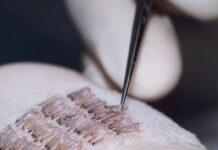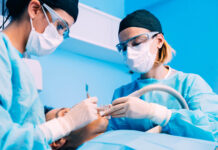
How do you achieve restful sleep after your rhinoplasty? Proper sleep is crucial for recovery; this guide will help you easily navigate the post-operative period.
Rhinoplasty, commonly known as a nose job, is a popular cosmetic procedure in Turkey, known for its skilled surgeons and state-of-the-art facilities. Whether correcting a breathing issue or enhancing your appearance, understanding the procedure is the first step toward a successful recovery.
Recovery begins even before the surgery. It’s important to set up a comfortable sleeping area, stock up on essential supplies, and arrange for assistance in the initial days post-surgery.
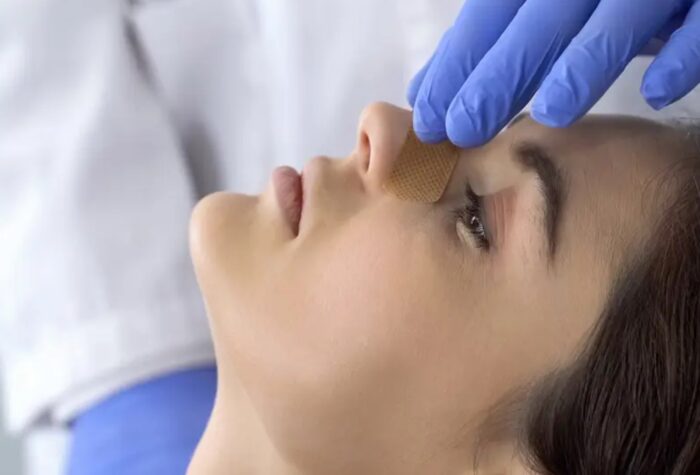
Immediate Post-Operative Care
The period immediately following your rhinoplasty in Turkey is crucial for setting the stage for a smooth recovery. Here’s what you need to focus on:
- Directly After Surgery: Expect to wake up in a recovery room with bandages and possibly a splint on your nose rhinoplasty. It’s normal to feel dizzy, disoriented, or nauseous due to the anesthesia.
- First Few Hours: Medical staff will monitor you closely to ensure your vitals are stable and have no immediate complications.
- Pain Management: You might experience pain or discomfort as the anesthesia wears off. Your surgeon will prescribe pain medication. It’s important to follow the dosage instructions to manage pain effectively without overmedication.
- Instructions from Your Surgeon: Before leaving the clinic, you’ll receive detailed instructions regarding wound care, medication, and signs of possible complications. Pay close attention and ask questions if anything is unclear.
- Returning to Your Accommodation: Arrange for someone to drive you back to your accommodation. It’s advised not to engage in any strenuous activities or stress-inducing situations.
- Rest and Observation: The first night is often the most challenging. Set up a comfortable resting area to sleep with your head elevated. Have someone stay with you to assist with any needs and monitor your condition.
- Hydration and Nutrition: Stay hydrated and consume light, easy-to-digest foods. Avoid hot liquids that might increase swelling.
- Avoid Certain Movements: Be cautious not to bump your nose. Avoid blowing your nose, and use extreme care when brushing your teeth or washing your face
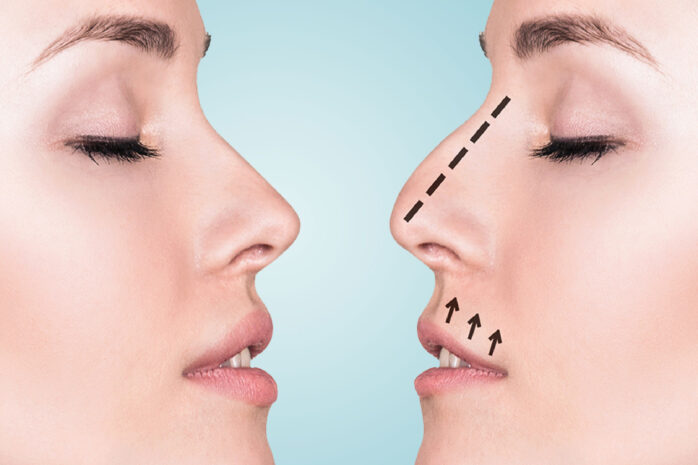
How Sleep Speeds Up The Recovery
Quality sleep is not just a comfort issue but a vital part of healing after a rhinoplasty.
- Facilitating Healing: During sleep, your body repairs tissues and cells, including those affected by surgery. Good sleep can accelerate the healing process.
- Reducing Swelling and Bruising: Adequate rest can help quickly reduce swelling and bruising around the nose area.
- Pain Management: Sleep aids in pain management. A lack of sleep can lower your pain threshold, making post-operative discomfort feel more intense.
- Sleep Challenges: Post-surgery, you might face challenges such as discomfort from the surgery, difficulty breathing through the nose, or anxiety about harming the surgical site while sleeping.
- Creating a Sleep-Conducive Environment: Ensure your sleeping environment is quiet, dark, and comfortable. Use pillows to maintain a semi-upright position. Consider using a humidifier to add moisture to the air, which can help ease breathing.
- Sleep Aids: Consult your surgeon before using any sleep aids, including over-the-counter options. Some medications can interfere with post-operative medications or recovery.
- Monitoring Sleep Quality: If you’re experiencing persistent difficulties with sleep, discuss this with your surgeon. They may provide additional advice or adjust your post-operative care plan.
Remember, your body needs extra care and rest to recover from the rigors of surgery. Prioritizing sleep is not a luxury; it’s a critical aspect of your healing journey.
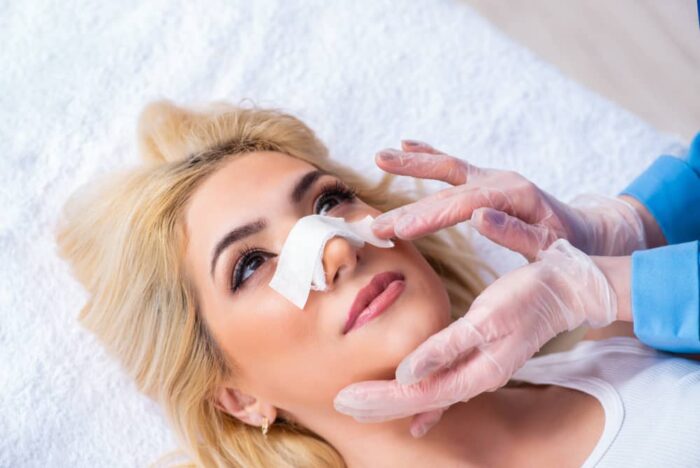
Best Sleeping Positions After Rhinoplasty
Post rhinoplasty, your sleeping position is significant in the healing process and comfort level. Here’s what you need to know:
- Elevation is Key: Keep your head elevated above your heart level. This position helps reduce swelling and minimizes the risk of accidental bumps to the nose.
- Back Sleeping: The best position is on your back. It prevents direct pressure on your nose and helps maintain an elevated head position.
- Avoid Side Sleeping: Sleeping on your side can put pressure on one side of your nose, potentially affecting the results of your surgery. It can also lead to more swelling on the side you’re lying on.
- Steer Clear of Stomach Sleeping: This position puts direct pressure on your face and nose, increasing the risk of shifting the nasal tissues as they heal.
- Using a Travel Pillow: A travel neck pillow can be helpful to keep your head from turning to the side while you sleep.
- When to Change Positions: Follow your surgeon’s advice on when it’s safe to start sleeping in other positions. This typically happens once the initial healing phase is over.

Tips for Comfortable Sleep
Getting a good night’s sleep after rhinoplasty can be challenging, but these tips can help make it more comfortable:
- Supportive Pillows: Use multiple pillows or a wedge pillow to maintain an elevated head position. This setup helps reduce swelling and discomfort.
- Creating a Restful Environment: Ensure your sleeping area is calm, quiet, and dark. Consider using earplugs or a sleep mask if you’re sensitive to light and sound.
- Managing Congestion: If you’re experiencing nasal congestion, a humidifier can add moisture to the air, making breathing more comfortable.
- Maintaining Room Temperature: Keep the room at a comfortable, cool temperature. Overheating can increase swelling.
- Avoiding Certain Medications and Foods: Some medications and foods can interfere with sleep quality. Avoid caffeine and heavy meals before bedtime.
- Avoiding Screens Before Bed: Screen light can interfere with your body’s sleep-wake cycle. Try to avoid using electronic devices at least an hour before bed.
- Preparing for Nighttime Needs: Keep essential items like water, medications, and your phone within easy reach of your bed so you don’t have to get up frequently.
- Post-Surgery Garments: If you’ve received a nasal splint or other post-surgery garments, ensure they’re properly placed before sleeping to support the healing nose.
- Consulting Your Surgeon: Discuss with your surgeon if sleep disturbances continue. They might suggest additional strategies or modifications to your recovery plan.
Recovering from a nose job requires patience and care. Following these guidelines can ensure a smoother, more comfortable recovery period. Remember, every step you take towards proper care is a step towards your desired results.

